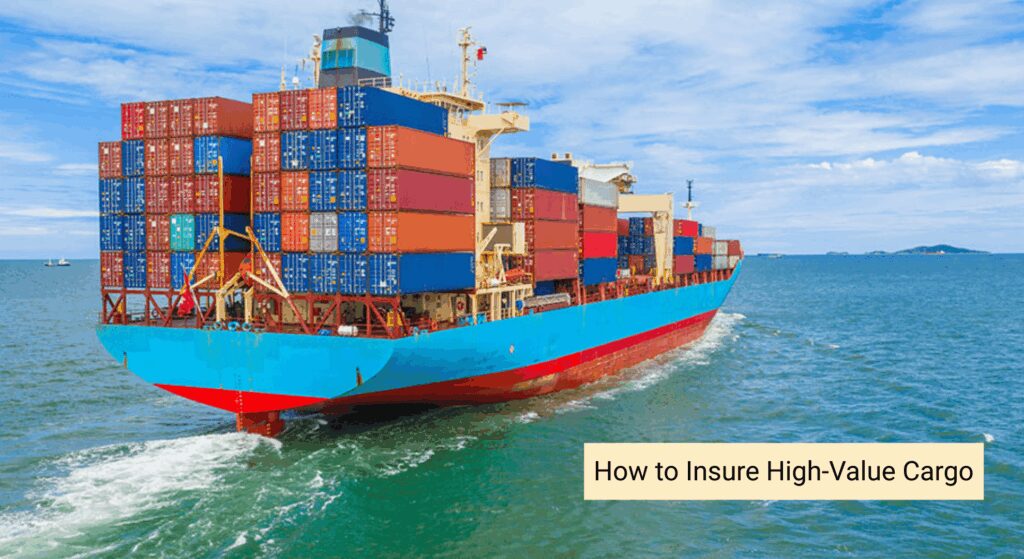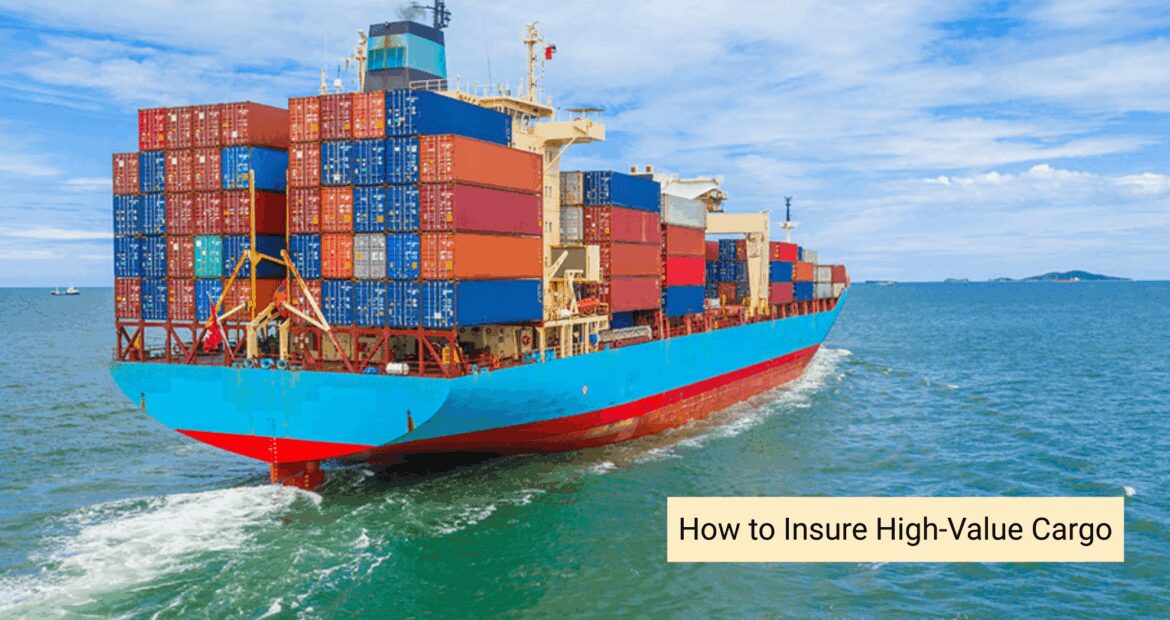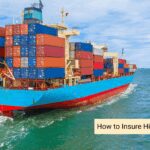
Summary
Shipping valuable goods overseas needs more than basic protection, it requires specialized high value cargo insurance tailored for marine transit. To properly insure high value cargo marine insurance, shippers must use strategic best practices that balance comprehensive coverage with efficient risk management.
This guide outlines steps Indian and global sellers should take to protect high-value shipments, minimize claims issues, and gain peace of mind.
Table of Contents
- Understanding High Value Cargo Insurance and Marine Coverage
- Conducting a Comprehensive Risk Assessment
- Choosing the Right Insurer for High Value Cargo Insurance
- Implementing Security & Handling Protocols
- Accurate Valuation and Documentation
- FAQs
Understanding High Value Cargo Insurance and Marine Coverage
High value cargo insurance offers enhanced protection beyond standard policies, covering shipments typically valued above $100,000 against theft, damage, loss, or delays during sea transport. Marine insurance adds safeguards against perils like storms, piracy, and port hazards.
To insure high value cargo marine insurance effectively, coverage must align with shipment type, route, and risk specifics. Tailored policies ensure full value recovery in case of incidents, safeguarding business investments.
Conducting a Comprehensive Risk Assessment
Risk assessment is the foundation of effective cargo insurance. Consider:
- Transport route hazards (e.g., piracy zones or multiple port transfers)
- Cargo type and packaging (fragile or high-value goods need superior protection)
- Security environment (warehouse and handling staff training, monitoring)
Identifying these risks helps choose policies covering relevant threats and may qualify you for premium discounts.
Choosing the Right Insurer for High Value Cargo Insurance
Not all insurers handle high value cargo insurance effectively. Choose one with:
- A strong record in marine claims handling
- Custom policies with adequate coverage limits for valuable goods
- Experience in international shipping complexities
- Transparent terms for deductibles and exclusions
This helps minimize disputes and secures faster claim processing.
Implementing Security & Handling Protocols
Robust security lowers the risk of theft or damage, often reducing premiums. Best practices include:
- GPS tracking and tamper-evident seals on containers
- Secure warehouse access and high-quality locks
- Training staff on handling protocols and route safety
- Collaborating with carriers experienced in high value cargo insurance standards
Accurate Valuation and Documentation
Premiums and claims depend on declared cargo value. Ensure accuracy:
- Declare true market value, not undervalued (leads to risk) or overvalued (raises cost).
- Maintain detailed documentation: condition reports, chain of custody, invoices, and policy certificates.
- Update records if cargo value changes before shipping
Clear documentation simplifies claim settlement and dispute resolution.
FAQs
Q1: Why is it critical to insure high value cargo marine insurance separately?
High-value cargo faces greater financial risk from theft, damage, or loss at sea. Specialized high value cargo insurance offers full protection against maritime-specific hazards.
Q2: What factors influence high value cargo insurance cost?
Premiums depend on declared value, cargo type, route risks (like piracy/weather), and security protocols.
Q3: How can shippers reduce premiums?
Implement GPS tracking, robust seals, training protocols, and choose reliable carriers. Strong security can lower insurance rates.
Q4: What documentation is essential?
Include accurate invoices, valuation proof, custody documentation, policy certificates, and shipping manifests to support claims.
Q5: Is partial insurance an option?
Yes, but it limits pay-outs proportionally. Comprehensive coverage is strongly recommended for best protection.
Effectively protecting valuable shipments by sea demands a focused approach to insure high value cargo marine insurance. Through thorough risk assessment, expert insurer selection, strong security measures, and accurate documentation, shippers can safeguard their assets and ensure smooth claim processing.
Prioritizing high value cargo insurance not only secures high-value goods but also protects business reputation and finances in global trade. Use these best practices as your roadmap for confidently insuring and shipping valuable cargo by sea.





